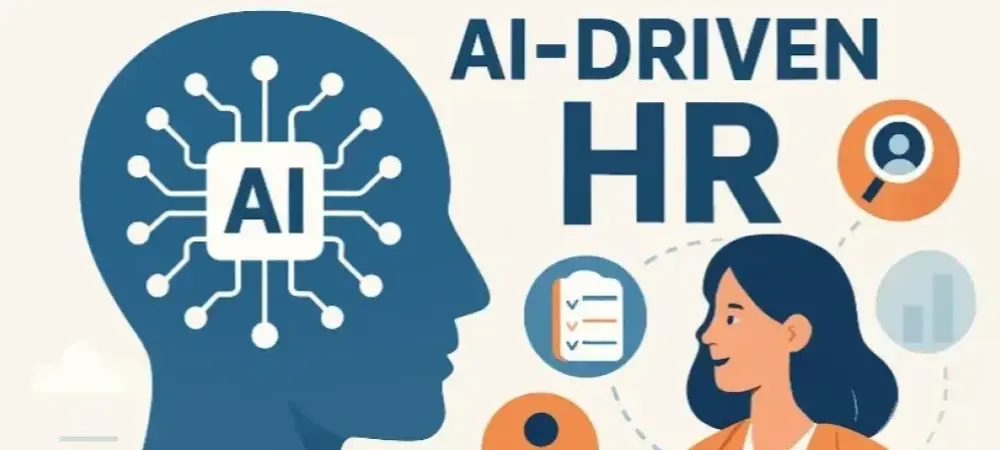As UK HR departments increasingly integrate artificial intelligence into their operations, a looming question prevails: how best to balance the allure of cutting-edge technology with the imperative of safeguarding sensitive employee data? AI’s potential to revolutionize recruitment, task automation, and candidate matching is undeniable, yet it comes with heightened concerns about privacy and security risks. A recent survey has highlighted that a majority of HR leaders in the UK place the utmost importance on robust data protection when evaluating HR software options. Against the backdrop of persistent data breaches, the conversation around AI adoption within HR has grown more complex and crucial.
The Imperative of Data Security in HR Software
Prioritizing Security in Vendor Selection
UK HR leaders are increasingly vigilant regarding data security, with 75% of them identifying it as a critical feature for HR software solutions. Drastic security lapses in the past have amplified the urgency of this matter, prompting organizations to prioritize secure vendor selection processes. This entails not only rigorous background checks of vendors’ security certifications but also a comprehensive assessment of how well these companies maintain and update their security protocols. The necessity for fostering trust within organizations is paramount, particularly as they navigate myriad HR tools that, if not well-secured, could leave them vulnerable to breaches.
A proactive stance on security is no longer a choice but a necessity. Organizations are advised to engage in frequent evaluations and updates of their security measures to adapt to evolving threats. Employee training plays a pivotal role here. By equipping staff with the knowledge and skills to manage security protocols effectively, HR departments can significantly diminish potential risks. As organizations juggle multiple HR tools, a well-informed staff base can be the line of defense in preserving data integrity, ensuring compliance, and maintaining the overall security stance.
Addressing AI Privacy Concerns
Artificial intelligence is reshaping HR landscapes, but UK HR professionals are expressing growing anxiety about privacy issues that AI-enhanced HR solutions may introduce. Concerns stem from the possibility of AI algorithms accessing sensitive data without adequate protective mechanisms in place. Consequently, there is a growing consensus around instituting comprehensive privacy policies that govern the use of AI in HR settings. The goal is to ensure that data handling by AI systems aligns with legal and ethical standards, thereby safeguarding employee interests.
Such policies necessitate a balanced approach – on one hand, enabling HR tools to leverage AI capabilities for enhanced functionality, while on the other, embedding stringent data access restrictions. Organizations are encouraged to routinely audit their AI systems, ensuring compliance with the established privacy frameworks. This also includes transparency in how AI-driven decisions affect employees, bolstering trust within the workforce. By adopting this dual approach, UK HR departments hope to harness AI’s potential without compromising on privacy or ethical considerations.
Bridging the Skills Gap for AI Deployment
Investing in Training and Upskilling
One of the primary barriers to widespread AI adoption in HR is the noticeable skills gap, with 42% of organizations identifying it as an impediment. Training and upskilling initiatives are critical in overcoming this hurdle, ensuring that HR professionals can operate AI-enhanced software effectively and securely. Equipping staff with specialized knowledge about AI systems is more than an operational benefit; it is a strategic necessity to ensure data protection and optimize the use of AI solutions.
These training programs need to be comprehensive, tailored to address the specific challenges that AI integration presents. By focusing on the nuanced aspects of AI interfaces and data management, organizations can empower HR teams to leverage these tools confidently. The positive ripple effect of such training extends beyond security, leading to improved operational efficiency and, ultimately, enhanced employee satisfaction.
AI in Recruitment: Costs and Benefits
In response to rising recruitment costs, 66% of HR departments are turning to AI-enabled software for streamlining recruitment processes. AI’s ability to automate repetitive tasks and improve candidate matching algorithms presents distinct advantages that traditional methods lack. By reducing manual intervention, AI enhances the efficiency and accuracy of recruitment operations, allowing HR professionals to dedicate more time to strategic activities.
Despite the evident benefits, adopting AI in recruitment is not without its challenges. Organizations need to be mindful of aligning AI tools with organizational values and diversity goals, ensuring that AI-driven recruitment processes do not inadvertently perpetuate biases. Additionally, continuous evaluation and refinement of AI algorithms are crucial to adapt to changing market needs and workforce dynamics. This alignment not only maximizes the benefits of AI adoption but also positions HR departments as strategic partners within their organizations.
Advancing Through Secure AI Adoption
As artificial intelligence becomes more integrated into HR departments in the UK, a significant question arises: how can organizations effectively harness this advanced technology while ensuring the protection of sensitive employee information? AI undeniably has the potential to transform various HR functions, including recruitment, task automation, and candidate matching. However, these advancements come with increased concerns over privacy and security risks. A recent survey revealed that most HR leaders in the UK prioritize strong data protection when assessing HR software options. In a landscape where data breaches are a constant concern, discussions on AI adoption within HR are increasingly complex and vital. The challenge lies in finding a balance where the benefits of AI do not overshadow the necessity of reliable data safeguarding measures. As technology evolves, HR departments must remain vigilant, ensuring that the implementation of AI solutions does not compromise the trust and security of employee data.

